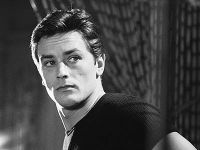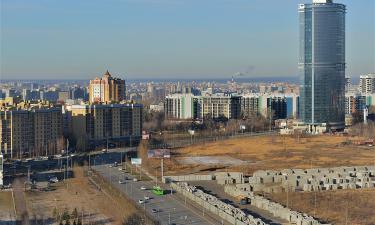Locarno: Interview with Alain Delon
Journalist Rui Martins is in Locarno sending an exclusive series of articles to Pravda.Ru Portuguese version. Here is his latest interview, with French screen idol Alain Delon, who received the Locarno Film Festival Career Award.
After receiving the award from the Locarno Film Festival for his career, actor Alain Delon gave interviews and made several statements. "I am not a lover of the cinema today, and I'm not the only one to say it, I had the chance to have lived a different movie world, the 60s to the 80s, different from what is practiced today, cinema that made one dream".
Is there any recent film you wish you had done?
There is a movie I saw recently that I would have done the lead role of the movie Untouchables (Intouchables).
Where did your desire to make movies come from?
One day in the office of the person who would be the director of my first movie I saw Sacha Guitry's film and there I felt I wanted to do cinema. I knew nothing about cinema had just finished the army. And when I heard him say that being a film actor was the most beautiful profession in the world, for what it gives to others, I decided - this is what I will do, I told myself.
Although you worked on Asterix, you have never done comedy. Why?
Because it is not my style, it is not my way and not my genre. The example I always give that a train enters the station and at one window there is Belmondo, at the other, Delon. When Belmondo passes, everybody laughs, when Delon appears no-one laughs. So I left the comedy to Belmondo. But it is true, when people see the face of Belmondo they cannot help but laugh, but with me it is silence. I never have a sense of comedy. In the film Asterix, the director saw that I could not make myself laugh and gave me, then, the role of Julius Caesar. I hadn't done a movie for some time and so I accepted.

Are you afraid of old age?
No, I'm not afraid, I am afraid of disease. In regard to the public who saw me, made me and loved me and followed me during all these years, I decided that I will never show myself faded, disfigured. If I came here like that, you guys would not like it and it would not be dignified. The day that happens you will not see me. I am not afraid of age.
How is Delon, the man, politically?
The thing I noticed in life is that the only ones who do not retire are politicians and actors.
I'll be very brief. I'm not passionate about politics, but it is true that I was a friend of the former President of France. I've always been a man of the right and I am not a socialist activist.
What were your relations like with Visconti?
First I must say I did not do films only with Visconti. My relationship with Visconti, at the beginning, was attentive, respectful and submissive because Visconti was a master, morea director of opera than cinema. But to put things in their place, I made a movie before Visconti in 1959, Plein Soleil, by Rene Clement, and it was watching this film that Visconti decided that I would be Rocco. For me this was an important stage and I did cinema in Italy with Antonioni and others, this phase was much more important. And since I was a young man, it was only much later that I discovered my chance and the privilege I had, and this is also why I say it is not the same cinema today.
Contrary to what they say, I am not the difficult actor with great directors, I suffer fools badly. With the big ones I go with my eyes closed, but those who do not even know where to put the camera, I'm terrible. With these directors cited and Melville, everything had its place, whether it was the hat, tie, scarf, shoes, everything was planned. These directors, like Clement, have three essential qualities to the director - first they direct how the actor should be, sitting with the legs crossed or not, then, they say what the actor will do, when he comes on the scene. And finally, he goes behind the camera. Most of the current directors have only one or two of these qualities, never three. Before, the filmmakers also wrote, and now rarely...what they do is more for the money.
The director is like the head of the orchestra. At that time I could easily name ten, today I would find it difficult.
Do you have a preference for tragedy?
It is something closer to my life, like Pascal Jardin would say, they are the tears of my childhood because my life was rather tragic until the beginning of the movie and then it was transported into the movies. My childhood was difficult, but this is my business. Then I went early to the army, aged 17, at 18 I went to Indochina. And on my return I did totally different things and probably would not be alive today. And in a miraculous and rare way the cinema came to seek me out. And why? For my looks, basically, but that did not correspond to what I thought or had within me. Maybe that explains my relationship with tragedy. But I, and I am a rare case, did not go looking for the cinema, the cinema came to look for me.
Do you miss the cinema today?
No, because I cinema I knew everything and lived it all. Only those who have not done everything with these directors I've worked with may be missing something. Today, I prefer to live with my memories of them to doing anything else.
Why did you not film in the U.S.?
I am passionate about film and on camera, no difference. I made two films in the U.S. and they told me if I stayed there that I would become a big star. But I would not stay in the U.S. and did not like living there, although I liked the American cinema. France and Paris I missed greatly and I told them, when they want to do a movie with me, call me. And I returned to France and made my career in Italy and then France. My son Anthony was born in the U.S..
How was it working with Burt Lancaster?
It was like working with Jean Gabin, two masters. Lancaster was one of my idols. Another great was John Garfield. He once said to Marlon Brando that he'd like to make a movie with him, even if it was to be in a scene as a chamberlain. But we have not had a chance to do so.
Rui Martins
Subscribe to Pravda.Ru Telegram channel, Facebook, RSS!




